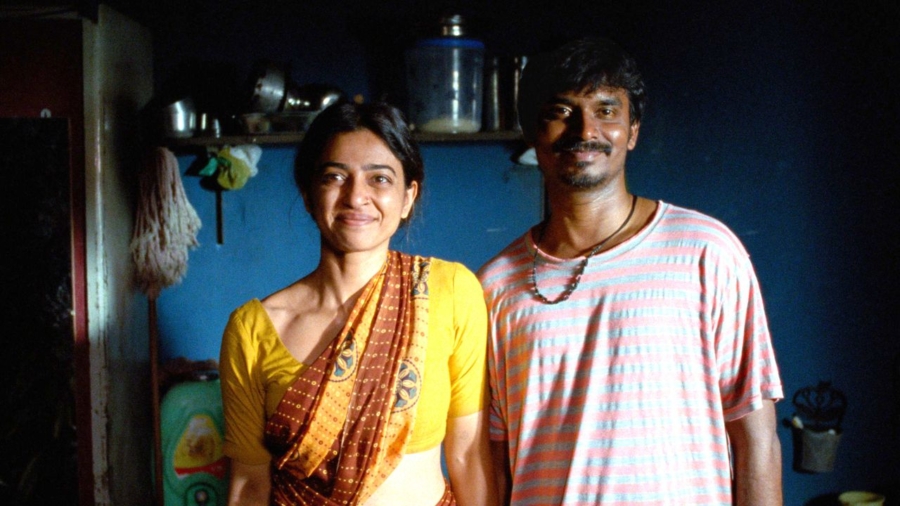“Why do you always scold me like a teacher?” asks the husband, defeated.
“This is the voice of a frustrated woman,” replies the wife brusquely.
In Sister Midnight, it’s clear that Uma (Radhika Apte) and Gopal (Ashok Pathak) love each other. An extraordinarily chaotic couple, they embody German philosopher Martin Heidegger’s concept of ‘thrownness.’ This idea suggests that humans are ‘thrown’ into the world with no say in their existence and must now make sense of it. Uma and Gopal are similarly thrown into the bowels of Mumbai with distinct ideas of life: he, measured and controlled; she, leaving a trail of destruction in her wake.
It’s not the conventional Indian arranged marriage where the wife initially sucks it up before gradually finding a way in the world. Uma is honest about not knowing how to do life but with a facade of wisdom. “Uma is Mumbai,” Apte tells me from London, joined by director Karan Kandhari over Zoom. “Her journey is the journey of Mumbai—once beautiful and innocent, now overrun by people, chaos and expectations. Like Mumbai, Uma carries on until she loses sense of who she is.”
Not knowing how to do life in a city like Mumbai can be daunting. Even more so when you are married and living amid a strip of shacks close to the sea, your shoebox of a home held together not by urban privilege but by rusted tarpaulin sheets collapsing into each other. For debut director Kandhari, the goal was not to magnify the stultifying geographical space but the lives inside it. “This is how people are so I hoped to just capture it,” he says, explaining that Indian films reflecting the plight of the economically disadvantaged often fail to see them beyond their financial status—as people who can be just as unhinged, neurotic and complicated as anyone else.
Source link











